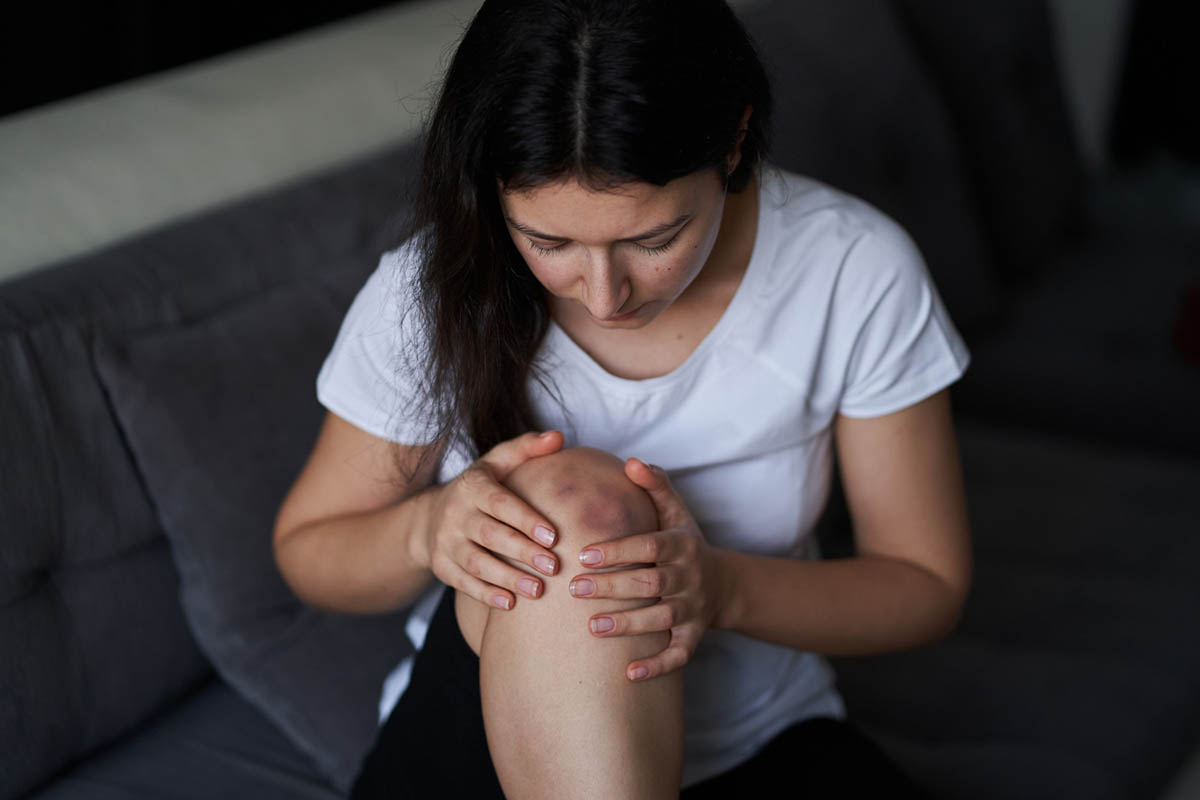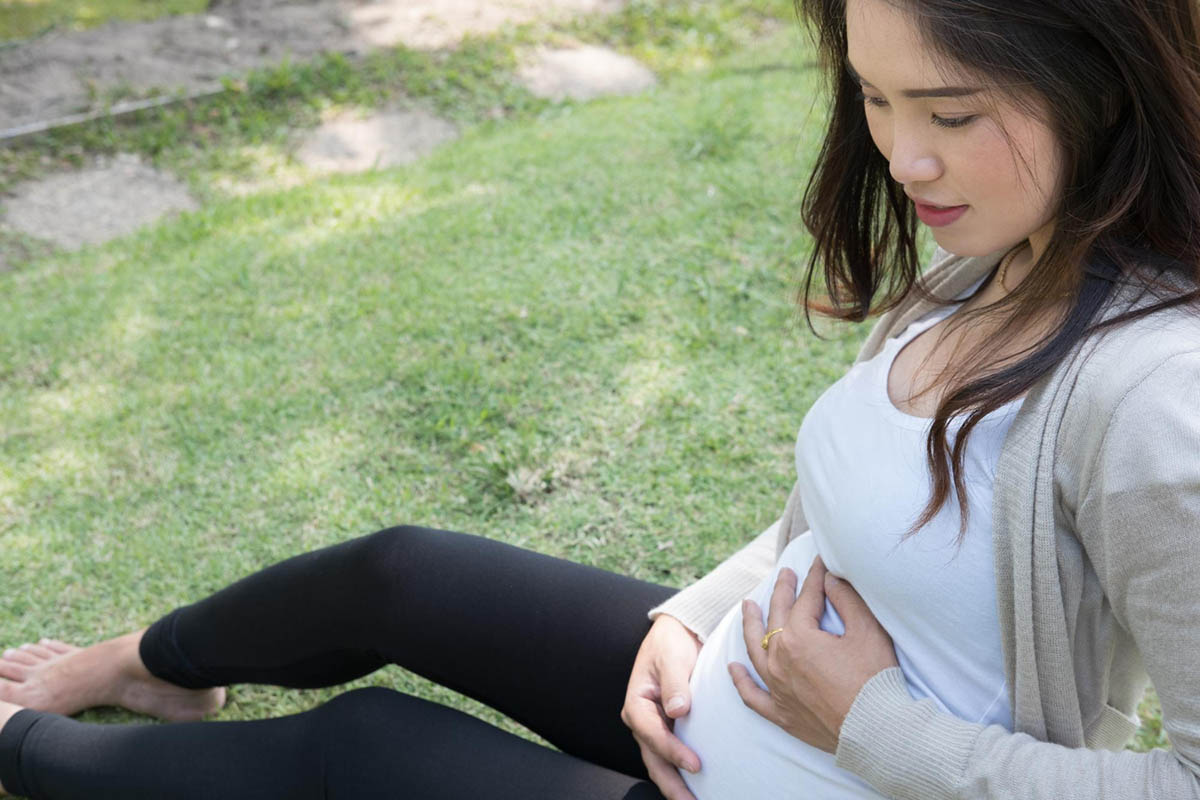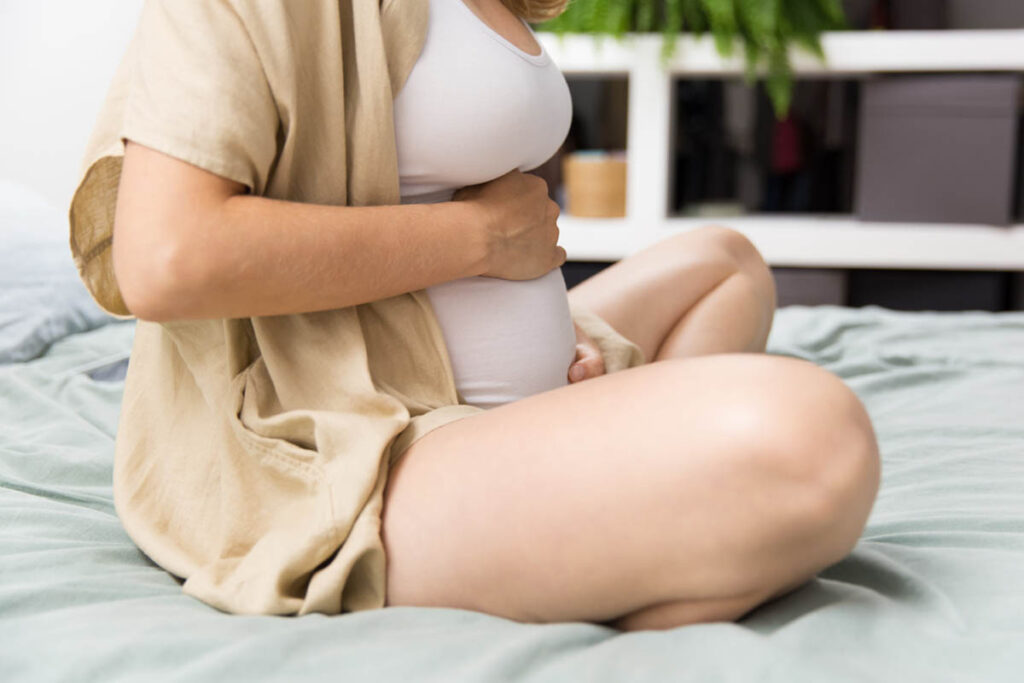The postpartum period brings about many physical changes, and for many new moms, postpartum knee pain can be one of them. The body undergoes significant shifts during pregnancy, including changes in hormone levels, weight gain, and fluid retention, all of which can affect the joints. As a result, many women experience knee joint pain postpartum, particularly when engaging in daily activities like bending, lifting, or carrying their newborns. Managing knee pain can be challenging, but with the right approach, new moms can alleviate discomfort and regain their mobility.
In some cases, knee pain 3 months postpartum or even knee pain 7 months postpartum may persist, making it difficult for new moms to fully recover without proper care.
What is Postpartum Knee Pain?
Postpartum knee pain is a common condition experienced by many women after childbirth. It occurs as the body adjusts to the physical stress and changes caused by pregnancy and delivery. This type of pain can range from mild discomfort to severe pain and often affects a woman’s ability to perform daily tasks such as walking, sitting, or even carrying the baby. For some, this pain may last a few weeks, while others may experience persistent pain several months after childbirth, including knee pain 3 months postpartum or even knee pain 7 months postpartum.
An increase in body weight during pregnancy has been linked to a higher occurrence of functional knee pain in women. In approximately one-third of cases, knee issues continue post-pregnancy and are associated with weight that remains after childbirth. This suggests that excess body weight can be a key risk factor for functional knee pain.
Causes of Postpartum Knee Pain
Several factors can contribute to postpartum knee pain:
- Weight During Pregnancy: The weight gained during pregnancy places additional pressure on the joints, especially the knees. This excess weight can cause joint stress, leading to discomfort during post-pregnancy recovery.
- Hormonal Changes: The relaxin hormone, which helps loosen the ligaments in preparation for childbirth, can make joints unstable, increasing the risk of pain and injury after delivery.
- Fluid Retention: Increased fluid retention during pregnancy can cause swelling in the joints, leading to postpartum pain in the knees.
- Weak Muscles: The pelvic floor muscles and abdominal muscles can weaken during pregnancy, leading to improper alignment and added stress on the knees.
- Physical Stress: Physical stress from daily activities such as carrying the baby, using a baby carrier, or sitting for long periods can further strain the knees.
Postpartum Knee Pain Symptoms for New Moms
Research indicates that knee pain is a prevalent issue among postpartum women, with an average rate of 55.7% experiencing discomfort. In a study of 79 women, 44% developed knee pain following childbirth, while 35% did not report any pain.
Common symptoms of postpartum knee pain include:
- Aching or Stiffness: Many women experience stiffness in their knees, especially in the morning or after sitting for extended periods.
- Swelling: Swelling around the knee joint can occur due to increased fluid retention during pregnancy and the postpartum period.
- Pain While Moving: Pain may intensify when performing daily tasks such as climbing stairs, standing up, or bending down.
- Difficulty Standing: Some women find it difficult to stand up from a seated or lying position, especially after a vaginal delivery.
- Sharp Pain: Severe pain can occur when putting weight on the knees or during physical activity like walking or lifting.
5 Tips to Manage Postpartum Knee Pain

While postpartum knee pain can be frustrating, there are several ways to manage it effectively and promote joint healing.
Tip 1: Gentle and Low-Impact Exercises
One of the best ways to manage knee pain postpartum is through gentle and low-impact exercises. Activities like walking, yoga care therapies, or swimming can help improve joint strength without placing too much strain on the knees. Knee strengthening exercises are particularly beneficial for building up the muscles around the knees, helping to alleviate muscle tension and prevent further injury.
- Stretching Exercises: Incorporating gentle stretches into your routine can help improve flexibility and reduce stiffness. Focus on stretches that target the hip joint, knees, and pelvic floor muscles.
- Kegel Exercise: This exercise not only strengthens the pelvic floor muscles but also helps improve posture and reduce strain on the knees.
- Foam Rolling: Using a foam roller can help release tight muscles and improve joint health by increasing blood flow and reducing muscle tension around the knees.
Tip 2: Focus on Proper Posture and Alignment
Maintaining good body posture is essential in preventing further strain on the knees. Pay attention to your body mechanics during everyday activities like lifting, sitting, and walking. Simple ergonomic practices such as bending at the knees instead of the waist and avoiding prolonged sitting can reduce the risk of worsening your knee pain postpartum.
- Daily Life Adjustments: Make small changes to your daily routine, such as using supportive cushions when sitting or being mindful of how you move when carrying your baby.
- Postpartum Hip Pain: Correcting your posture can also help reduce postpartum hip pain, which can be closely linked to knee pain.
Tip 3: Use Heat or Ice Therapy
Using heat or ice therapy can provide quick relief for postpartum knee pain. Applying cold therapy for 15-20 minutes at a time can reduce swelling and inflammation, while heat therapy can soothe sore muscles and improve blood flow.
- Heat Therapy: Heat can relax stiff muscles and improve circulation, which helps relieve pain and stiffness.
- Cold Therapy: Ice packs can reduce swelling and inflammation, especially if you experience fluid retention.
Tip 4: Consider Wearing Supportive Shoes
Wearing supportive shoes with proper arch support and cushioning is essential in preventing knee pain, especially during postpartum recovery. Avoid wearing high heels or unsupportive flats, as they can contribute to poor posture and place additional stress on the knees.
- Proper Footwear: Look for shoes that provide both arch support and shock absorption, especially when engaging in physical activity or walking for long periods.
- Postnatal Women: Post-natal women often benefit from using specialized footwear designed to accommodate the changing structure of their feet after pregnancy.
Tip 5: Consult a Physical Therapist
If your postpartum knee pain persists, seeking professional advice from a physical therapist can be a game-changer. A therapist can evaluate your specific needs and develop a tailored exercise program to improve strength, flexibility, and joint health.
- Treatment Options: Physical therapy is an effective option for addressing persistent pain in the knees and other joints. Therapists can guide you through knee strengthening exercises that target the root causes of your pain.
- Postpartum Woman: Consulting with a therapist early in your postpartum recovery can improve your quality of life and help prevent future joint issues.
When to Seek Medical Help for Postpartum Knee Pain
If you continue to experience severe pain or persistent pain after following these tips, it’s essential to consult a healthcare professional. You should seek medical attention if you notice any of the following:
- Severe Swelling or Inflammation: If you experience swelling that doesn’t improve with cold therapy, it’s important to consult a doctor.
- Difficulty Walking or Bearing Weight: If walking becomes difficult or painful, professional treatment may be required.
- Signs of Infection: Redness, warmth, or fever could indicate an infection, especially if combined with knee pain.
Expert Care for Postpartum Knee Pain at Vitality Therapy & Performance

At Vitality Therapy & Performance, we understand the challenges that postpartum women face during their recovery. Our dedicated team offers personalized care to help manage postpartum knee pain and other related issues such as postpartum hip pain and joint stress. We provide a range of alternative treatments and physical therapy services designed to help new moms regain their mobility and return to their daily life without discomfort. Our experts focus on improving your joint health through customized exercises and therapies, ensuring that you can confidently navigate your approach to postpartum recovery.
Conclusion
While postpartum knee pain can be a frustrating part of post-delivery recovery, it’s important to remember that there are numerous ways to manage and reduce discomfort. From low-impact exercises to seeking professional advice, new moms can alleviate knee pain and regain their strength. If the pain persists, consulting with a physical therapist or healthcare provider can ensure a smooth recovery. Prioritizing your joint health and making adjustments to your everyday life will help improve your quality of life as you care for your newborn.
At Vitality Therapy & Performance, we provide expert support for new moms experiencing postpartum knee pain and other related issues. Our specialized postpartum care program focuses on helping mothers regain mobility and strength through tailored treatments, including pelvic floor exercises for new moms. By addressing the root causes of postpartum discomfort, we empower women to restore their health and confidently manage the physical demands of motherhood.
FAQs
Why do my knees hurt so much after pregnancy?
The combination of weight during pregnancy, hormonal changes, and weakened muscles often leads to knee pain postpartum. The relaxin hormone loosens ligaments during pregnancy, which can cause instability in the knees and lead to pain after childbirth.
How long does joint pain last after pregnancy?
Joint pain can last anywhere from a few weeks to several months postpartum. If you experience knee pain 3 months postpartum or even knee pain 7 months postpartum, it’s essential to consult a healthcare provider to explore treatment options.
Is it normal for joints to hurt postpartum?
Yes, it’s common for joints, including knees, to hurt after pregnancy due to the increased joint stress and physical stress from carrying extra weight. Postpartum knee pain is often temporary, but if the pain persists, seeking medical advice is recommended.

